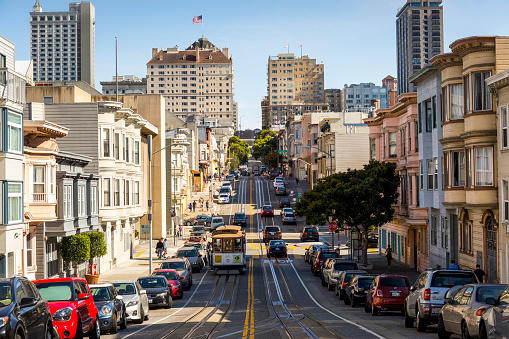Over the past few months, San Francisco has slowly inched towards approving a new ordinance that would put the city on the map.
The city has been reviewing a Surveillance Ordinance which would ban all city departments from using facial recognition technology, or they’d need board approval to purchase new surveillance devices.
On Monday, the rules committee of the San Francisco Board of Supervisors unanimously passed the proposal.
Now, the ordinance only has one more round of votes to go through. If passed, it would make San Francisco the first city in the United States to ban facial recognition technology.
Mattle Cagle with the American Civil Liberties Union (ACLU) of Northern California told KPIX:
“Facial recognition allows the government to know where we walk, what stores we visit, even if we’ve gone to a protest or a place of worship. What’s great about it is that it makes sure that if law enforcement wants to deploy a new technology – something that may not be ready for prime time – they have to have a conversation with the community. And for facial recognition, it says ‘not in San Francisco, this stuff is broken.’”
Privacy and civil rights advocates have long critiqued facial recognition programs for their inability to read anyone who isn’t a white man.
Famously, Amazon’s Rekognition — which is in use by at least two police departments — mismatched 28 members of Congress to mugshots, including six members of the Congressional Black Caucus in a test run by the ACLU. The program also has greater errors in trying to recognize darker-skinned women.
In addition, Rekognition highlights the increased dangers of deploying such invasive technology with very little regulation around it. Recently, reports revealed that police in Washington County, Oregon are misusing the program by running artist sketches through it — increasing the likelihood of a false match.
San Francisco has faced pushback from city’s law enforcement, who claimed that the proposal would “make us less safe.” However, there’s a lot of irony in that statement because San Francisco’s policy also noted one key concern among advocates: facial recognition has the potential to increase government surveillance, particularly on Black and brown communities.
“The propensity for facial recognition technology to endanger civil rights and civil liberties substantially outweighs its purported benefits, and the technology will exacerbate racial injustice and threaten our ability to live free of continuous government monitoring,” the proposal stated.
Along with San Francisco, Oakland is also looking at banning facial recognition technology. Recently, the city’s privacy commission unanimously approved a recommendation to the city council calling for one.
On May 14, the entire San Francisco Board of Supervisors will vote on whether to officially pass the ordinance.

